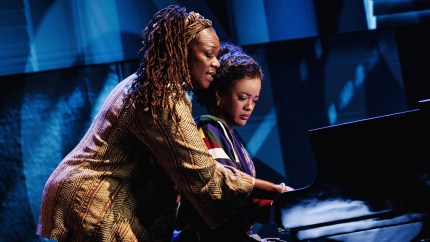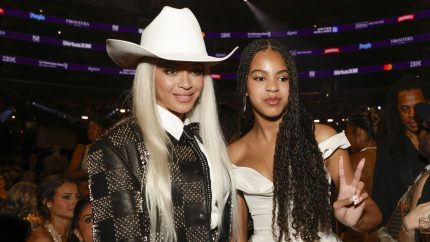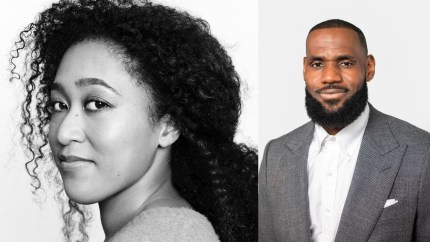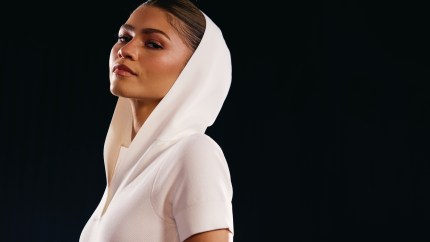Aunjanue Ellis-Taylor on ‘Origin,’ pay disparity for Black actresses in Hollywood: ‘I can’t retire’
The Academy Award nominee appeared on theGrio's "Acting Up with Cortney Wills" podcast to discuss her latest project.
Aunjanue Ellis-Taylor’s latest project is here. “Origin,” from filmmaker Ava DuVernay, hits theaters Jan. 26, and theGrio’s Cortney Wills caught up with the actress ahead of its release, breaking down what she hopes a film like “Origin” can do for audiences and her perspective as a Black woman working in Hollywood.
As theGrio previously reported, “Origin” is based on Isabel Wilkerson’s best-selling book, “Caste: The Origins of Our Discontents.” While the book is based on Wilkerson’s theory that uncovers how the caste system has shaped America throughout history, the film centers on the Pulitzer Prize-winning author herself as she moves through immense grief and loss in the midst of working on her theory.

As she prepares for the release of her latest project, Ellis-Taylor, who stars as Wilkerson in the film, is reflecting on the road that got her to a film like “Origin.”
“It’s been a journey,” she told Wills. “[In] 2022 I was working constantly, and then I did ‘Origin’ in the first part of 2023. And yeah, it’s been crazy.” She continued, “Hopefully we’ve done something with ‘Origin’ that will mean something to people, that will really mean something to somebody. Because we worked our tails off on that thing and Ava DuVernay. My God, I, you know, hats off, shoes off.
“It was the first time that we had heard about it in such a public forum,” she said when discussing Wilkerson’s theory. “It was a New York Times bestseller, so these ideas are in our popular culture in that way … the consideration of caste being in this country is not a new idea, but not one certainly that’s saturated. We assume that we know of the caste system in India and we associate caste with India, right? But I have never associated the caste system with Nazi Germany and I’ve certainly never seen what we are experiencing here in America as a caste system that is actively being sustained.”
She went on to say how she feels this is a perfect moment for the film to come out, especially given the upcoming presidential election. “When we see that we are linked with all of these other cultures, countries, when we are linked and we have an awareness of what is happening, we’re better armed to confront it because if we don’t know what’s at play then we’re all fighting in our corners. But now we know, “No, we’re linked here and it serves us. It serves us to hold hands.”
Later in the conversation, Wills and Ellis-Taylor touched on the current conversations in Hollywood surrounding pay disparity, specifically for Black actresses. As theGrio previously reported, Taraji P. Henson, “The Color Purple” star, has shed light on the ways in which her treatment in the industry has been different from her white counterparts, illuminating the challenges that Black women still face in the fight for equality, even as movie stars.
“I can only speak for myself,” she explained. “It was interesting listening to Taraji and I said, you know, Black women, actors, like Black people are not monoliths. Taraji Henson is a superstar. You know, she’s Black royalty at this point, so what she needs I don’t necessarily need. Taraji wants to be picked up and taken to work every morning. I don’t need that, you know?”
She details how for her, she enjoys “being by herself” in her rental cars, referring to Henson’s recent reveal that she had to fight for a driver on “The Color Purple” set. For Ellis-Taylor, this is time where she can call her sister, listen to her music and doesn’t have to “take care of anyone else’s feelings.”
Recommended Stories
“I like the aloneness of that,” she continued. “So I don’t need someone picking me up. She needs that. She feels that she needs that for her safety, so I feel that we need different things and we need to allow that to be the case.” She later recalled how after shooting “King Richard” she had expressed to her co-star Will Smith that she felt she was not paid enough, and he went into his own “pocket” and doubled her pay, which she explained “still wasn’t enough” compared to her white counterparts.
“It still wasn’t enough compared to what my contemporaries get paid, it’s not the same,” she explained when referring to other white actors her age like Cameron Diaz who can retire. “They can say, ‘No, I don’t want to act anymore.’ Then they can retire. I can’t retire. I still have to work. I have people depending on me, there’s still things that I need to do … I have to continue to work and that shows the gross, you know, inequity in pay in our industry.”
The latest episode of “Acting Up” featuring Wills’ conversation with Ellis-Taylor is available to stream now wherever you get your podcasts.
Never miss a beat: Get our daily stories straight to your inbox with theGrio’s newsletter.








